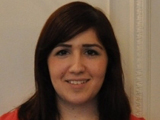 As junior doctors, we all see and hear things that work well or that could work better as we rotate between different departments across a number of hospital trusts. So we are in a privileged position to contribute to the safety of the healthcare we deliver to our patients. I previously found raising concerns a challenge, which was not helped by my lack of awareness of how a hospital’s organisation and management structure works beyond my ward. This improved as I was involved in visiting a hospital trust as part of Bruce Keogh’s Rapid Responsive Review. The trust I visited was one of the 14 hospital trusts in England with the highest mortality rates in the last two years (based on “standardised mortality rates”).
As junior doctors, we all see and hear things that work well or that could work better as we rotate between different departments across a number of hospital trusts. So we are in a privileged position to contribute to the safety of the healthcare we deliver to our patients. I previously found raising concerns a challenge, which was not helped by my lack of awareness of how a hospital’s organisation and management structure works beyond my ward. This improved as I was involved in visiting a hospital trust as part of Bruce Keogh’s Rapid Responsive Review. The trust I visited was one of the 14 hospital trusts in England with the highest mortality rates in the last two years (based on “standardised mortality rates”).
The review process involved reading a series of data packs developed from detailed data collected and analysed from various sources at the trust, national organisations (e.g. GMC), and local demographic data. These then helped to derive a series of key lines of enquiry (KLOEs), which guided a focussed enquiry by the review panel into the areas of greatest concern where trust performance was compared against national standards.
Each review had a panel team, which consisted of people from a variety of different backgrounds with a spectrum of experiences. The team members ranged from board level directors, senior clinicians, junior doctors, student nurses, lay representatives, and managers. This provided a 360 degree outlook on what went on at the hospital. We conducted a series of scheduled ”announced” and ”unannounced” visits. During each announced visit, different members of the review team would explore one or two different KLOEs through interviews, focus groups, observations, and patient/public meetings.
I was involved with leading focus groups for junior doctors, and I also observed different clinical areas with other panel members. The observation exercise involved visiting a ward to get a ”snapshot” sense of the cultural environment through discussions with members of staff, patients, and relatives. I also attended a patient session where a relative raised her concerns about a near miss she had observed whilst visiting her husband, where a patient in the same bay nearly received their medication doses twice due to poor communication between short staffed nurses on the ward. The key messages were all recorded, discussed, and captured in reports (unless urgent action was required) which were produced by lead panel members with final approval by the review panel chair. The final report was then presented at a summit meeting of different key members and the hospital trust to create an action plan and ways to support further improvement.
This process used data to identify outliers and allowed us to scratch below the surface to explore areas of good practice and where there were potentially resolvable issues. My experience showed that junior doctors can engage with the more junior members of staff on the shop floor and have some frank conversations. Through talking with a couple of junior members of staff and also through holding focus group discussions, I found that there were a number of key issues and outcomes identified, which contributed to the review process that perhaps would not have come to light otherwise. Some factors we identified that may have contributed to the ”higher mortality rates” were no appropriate access to senior, experienced doctors, and no clear process for communicating the escalation of care for deteriorating patients in a timely fashion.
Bruce Keogh says in his final review report that “junior doctors in specialist training will not just be seen as the clinical leaders of tomorrow, but clinical leaders of today.” The experience was invaluable and reinforced the fact that as part of our duty of care to patients, we should feel empowered to raise concerns when things go wrong and to ensure we learn from these inevitable mistakes.
Competing interests: I declare that that I have read and understood the BMJ Group policy on declaration of interests and I have no relevant interests to declare.
Nassim Parvizi is one of Bruce Keogh’s National Clinical Fellows based at the Medicines and Healthcare products Regulatory Agency (MHRA). Nassim was a junior doctor panel member at United Lincolnshire Hospital NHS Trust as part of Bruce Keogh’s Rapid Responsive Review. She was previously working as a junior doctor in North West London where she had an active interest and involvement in quality improvement and patient safety.
